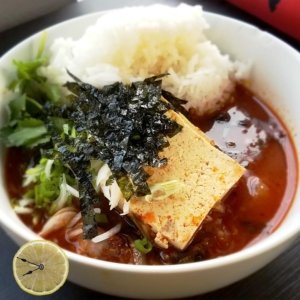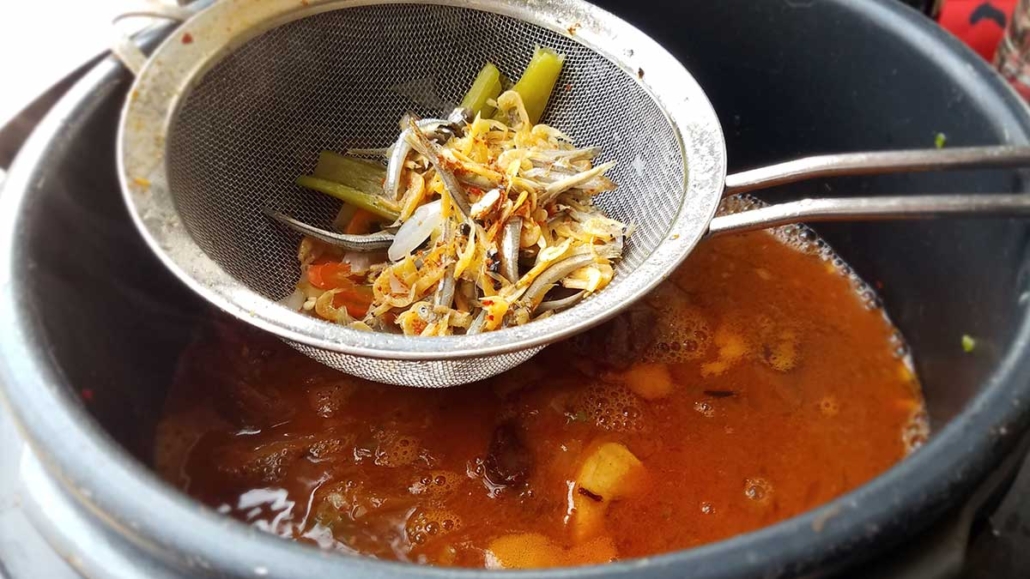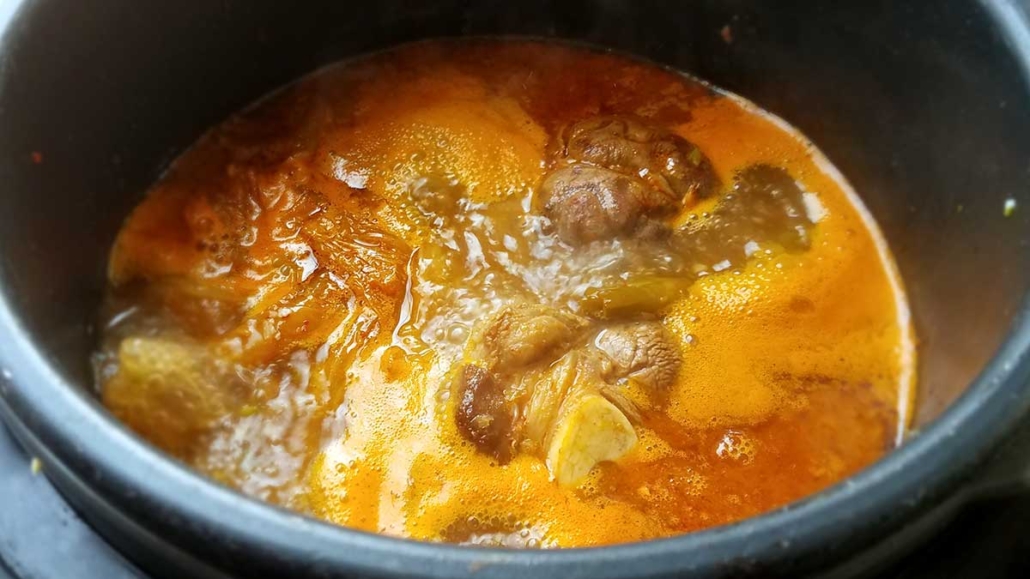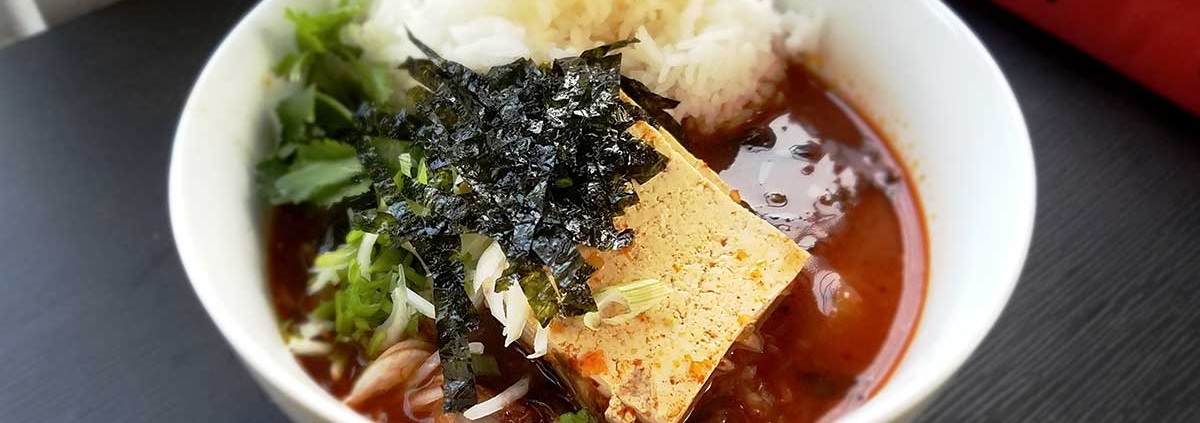Old Kimchi Stew

Mook Eun Ji
"At the end of hardship comes happiness." – Korean ProverbI am not Korean but eat a lot of kimchi and that must count for something. Perhaps for this reason, out of all the great cuisines I've been nourished by, I appreciate Korean food most. Many of the ingredients are simple and familiar, yet they are transformed into elegant dishes I'd never have expected. Korean cooking has been focused on essential flavors over so many generations even one missing ingredient would ruin the balance. I just love when minimalism maximizes flavor, and am dumbfounded by the simple perfection of an anchovy broth, much less elegantly-seasoned banchan, those numerous and increasingly delicious side dishes Korean hosts serve in such abundance! Fermentation was mastered at a goddess-like level by Korean women millenia ago and the rest of the world is only beginning to appreciate what they've been up to for all these years.
Ingredients
- 2 lbs beef shank or bone-in pork
- 1 cup kimchi juice
- 12 whole dried anchovy
- 1 tbsp dried shrimp
- 3 green onion roots for broth, tops for garnish
- 1 piece kombu or any dried kelp
- 1 qt water
- 2 tbsp toasted sesame oil
- 6 cloves garlic chopped
- 3 green chiles
- 1 cup lacto-plum vinegar or plum wine, or rice vinegar
- 1 kg kimchi aged 1-year, at least
- 2 tbsp fish sauce Red Boat brand, or better
- 1/4 cup soy sauce
- 1 block firm tofu
Instructions
- Marinate 1-inch thick slices of beef shank, lamb shank, or bone-in pork in kimchi juice for about 45 minutes. Don't leave for too long or kimchi juice will cook the meat. Reserve all of the leftover marinade.

- To make an anchovy-shrimp broth, first soak the dried anchovy, dried shrimp, kelp, and green onion roots in cold water for 20 minutes and bring to a boil. Remove from the heat until ready to use.

- Brown the beef shanks in tallow, lard, butter, or vegetable oil. I use a cast-iron skillet since my Instapot doesn't heat up well enough to sear meat.

- If using an Instapot, heat the toasted sesame oil on the Brown/Sauté setting and gently fry finely chopped garlic, green chiles, and green onion until softened. Add the beef shanks and change to the Meat/Stew setting. You can also use any roasting pan or Dutch oven with a lid.

- Strain your anchovy broth over the beef and add the kimchi juice, including all the leftover marinade, and plum vinegar. You can also use rice vinegar or plum wine. Seal the lid and cook for at least 1 hour 30 minutes.

- When the meat falls off the bones remove from heat and let cool to around 120F.

- Add the chopped kimchi and sliced tofu. Hard boiled eggs can also be added if you want. Kimchi is a living fermentation filled with probiotics, so by waiting to add the kimchi until ready to serve we avoid boiling it and retain these beneficial bacteria.

- Season to taste with soy sauce and fish sauce. Serve with rice and garnishes like nori seaweed, chile threads, toasted sesame, cilantro, green chiles, and green onions.

Notes

Mook Eun Ji Daikon Radish Aged 1-Year

Mook Eun Ji Nappa Cabbage Aged 1-Year




Leave a Reply
Want to join the discussion?Feel free to contribute!